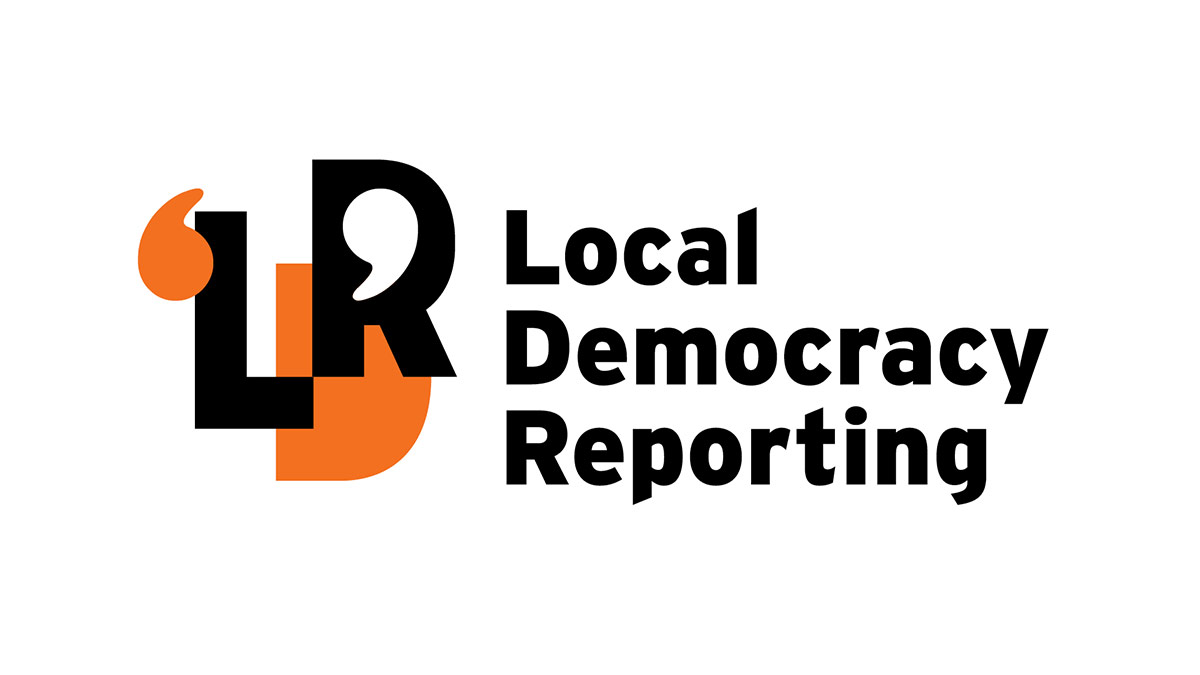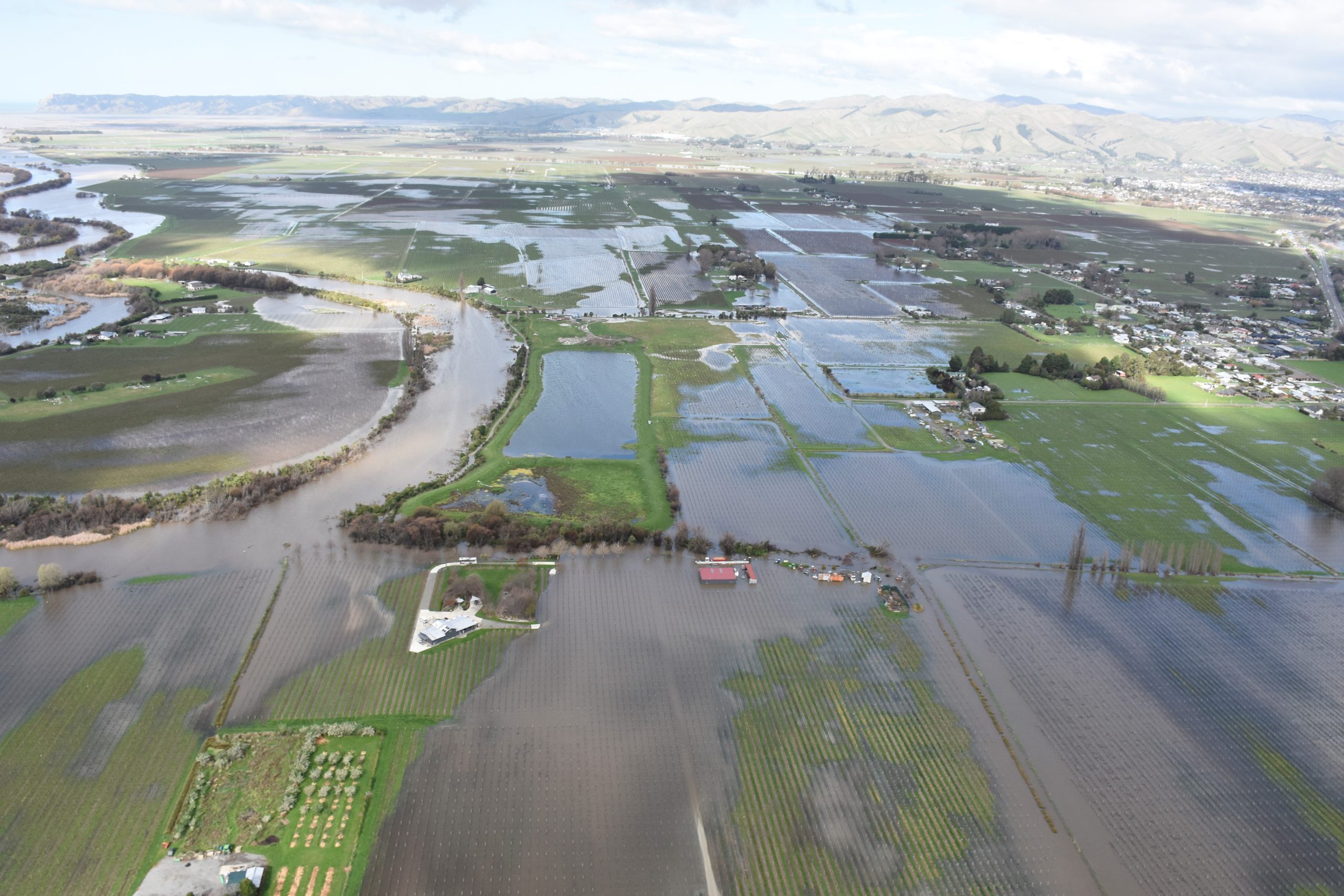More rock should help speed up river recovery work in Marlborough


Flooding at the lower Wairau River in August 2022. SUPPLIED: MARLBOROUGH DISTRICT COUNCIL
Limited rock supply has pushed back the end date for repairs along Marlborough’s Wairau River, with a large amount of “heavy and expensive rock work” remaining.
While most of the repairs to stopbanks and berms have been completed, and are “functioning”, following the 2021 and 2022 floods, there are still some major works to complete.
These include rebuilding the Wairau Diversion, finding and repairing a leak in the Tuamarina stopbank and topping up the rock lining between State Highway 1 and the Waihopai River confluence.
The council had so far spent close to $5m of the $13m it thought it would cost to repair the flood damage.
A report to the council’s assets and services committee, written by rivers engineer Geoff Dick, said both severe rain events had caused substantial damage to the river’s “stopbanks, berms, access tracks and edge works ... but largely in line with what was anticipated for floods of those sizes”.
The work planned for the Wairau Diversion mouth, next to a freedom camping site, would be “permanent work”, Dick said at a committee meeting in August. However, the council was seeking external advice on this.
“We have got to get the line of the work right, so it is there for the long term.”

The recovery effort had been working with “very limited quarry resource”, but this was expected to improve over the next 12 months, with production at the Pukaka Quarry, near Rarangi, set to improve.
A road extension at the quarry was well underway and producing good volumes of weathered rubble that would be “excellent” for the diversion mouth repair, Dick’s report said.
“There is still a large amount of heavy and expensive rock work to complete the 2021 flood damage repair schedule.
“The pace of this work is expected to pick up with increased availability of rock from all three local quarries ... with the Diversion mouth repair adjacent to the freedom camping area now programmed for construction early in 2024.
“In the meantime we expect to progress two or three more top-up sites depending on rock supply agreements.”
The repair project’s end date of mid-2024 would likely be pushed back, he said.
The July 2021 Wairau River flood was the second-largest and the August 2022 flood the fourth-largest since the inception of the Wairau Scheme.

The council’s surface water hydrologist Charlotte Tomlinson revealed in August the winter of 2022 was likely the wettest season in Marlborough in 100 years, according to new data.
She also told the environment and planning committee that July 2022 was Blenheim’s wettest month in 93 years, with 220mm of rain recorded.
The following month was the first month more than a metre of rain was recorded at a single monitoring site in Marlborough, with 1241mm recorded at Tunakino in the Rai Valley.
The extreme flooding events and repairs had affected the council’s coffers. Earlier this year it outlined its operating expenditure for the year, which had increased from the $134.1m signalled in the Long Term Plan to $158.8m.
Part of the $18.7m increase was due to flood protection and control works, among other capital programmes.
It prompted Marlborough Sounds ward councillor Barbara Faulls to ask at a budget meeting in March if the council was comfortable it had enough “fudge-factor” in the budget in case of another extreme event.
The council’s chief financial officer Martin Fletcher said “normal practice” was not to budget for the unforeseen.
“Because what do we do? Do we say, ‘right, we're going to rate an extra $10m per year, just in case something happens’? I get the feeling, I sense, our ratepayers wouldn't like that.
“What we do have to budget for, though, is for getting our infrastructure in a position, particularly, for example, on our rivers area, so that the stopbanks actually cope with those events.”
But the problem with that, as chief executive Mark Wheeler explained, was most of Marlborough’s rivers were flood-protected for a one-in-100 year weather event. And those ine-in-100 were happening “a lot more frequently” than one-in-100, Wheeler said.
“So I think it's a national challenge to try and lift flood protection standards, and we're not budgeting for that at this stage.
“At this stage the budgets are based around current levels of service. So there is a risk, you can't deny that.”
Public Interest Journalism funded through NZ on Air.

